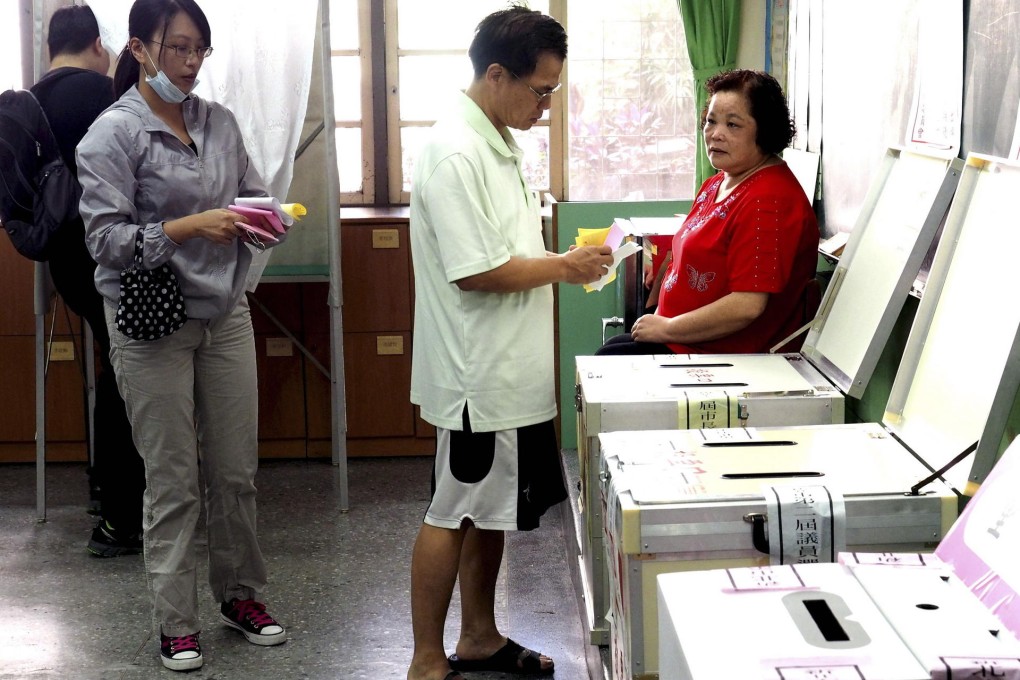Taiwan in the balance on big day at the polls
Blue gives way to green as two months on the campaign trail finally leads to the ballot box

Taiwanese went to the polls yesterday for what were billed as the island's nine-in-one elections, the outcomes of which are seen as crucial to the 2016 presidential poll.
Balloting started at 8am with voters queuing peacefully outside 16,000 polling stations across the island to elect 11,130 holders of nine types of public offices.
President Ma Ying-jeou, accompanied by Taipei mayor Hau Lung-bin, went to vote in the morning, drawing a huge crowd of media and supporters. Asked if he was confident about the chances of his Kuomintang (KMT) party in the local polls, Ma offered only a smile before hurrying away.
In the central city of Changhua, Tsai Ing-wen, chairwoman of the main opposition Democratic Progressive Party (DPP), appeared upbeat when she accompanied a DPP candidate to a polling station.
"I hope all DPP candidates will do well in the elections," she said.
Both Ma and Tsai have spent a lot of time on the hustings for their candidates in the past two months, hoping to retain or increase their control of 22 cities and counties.